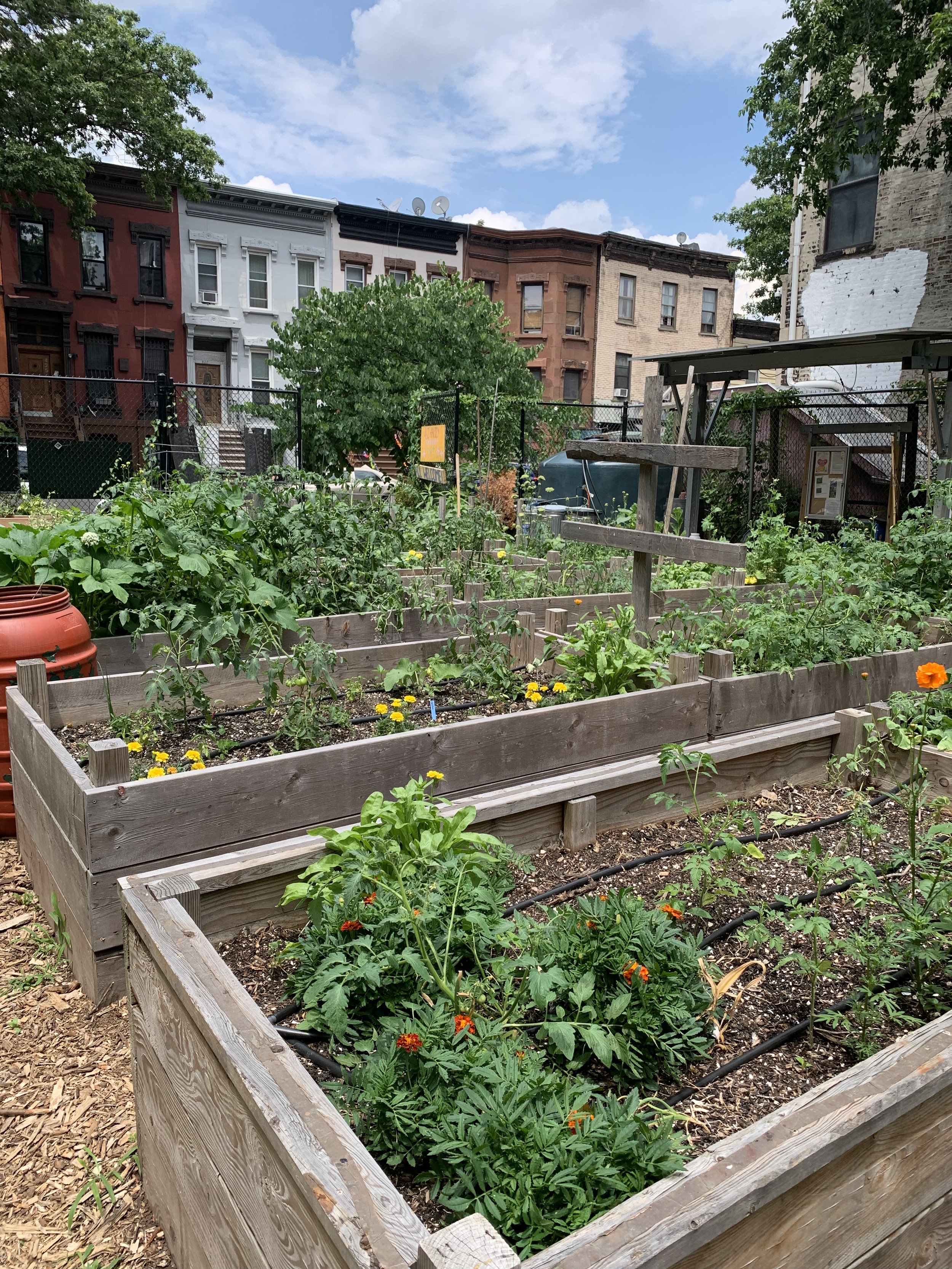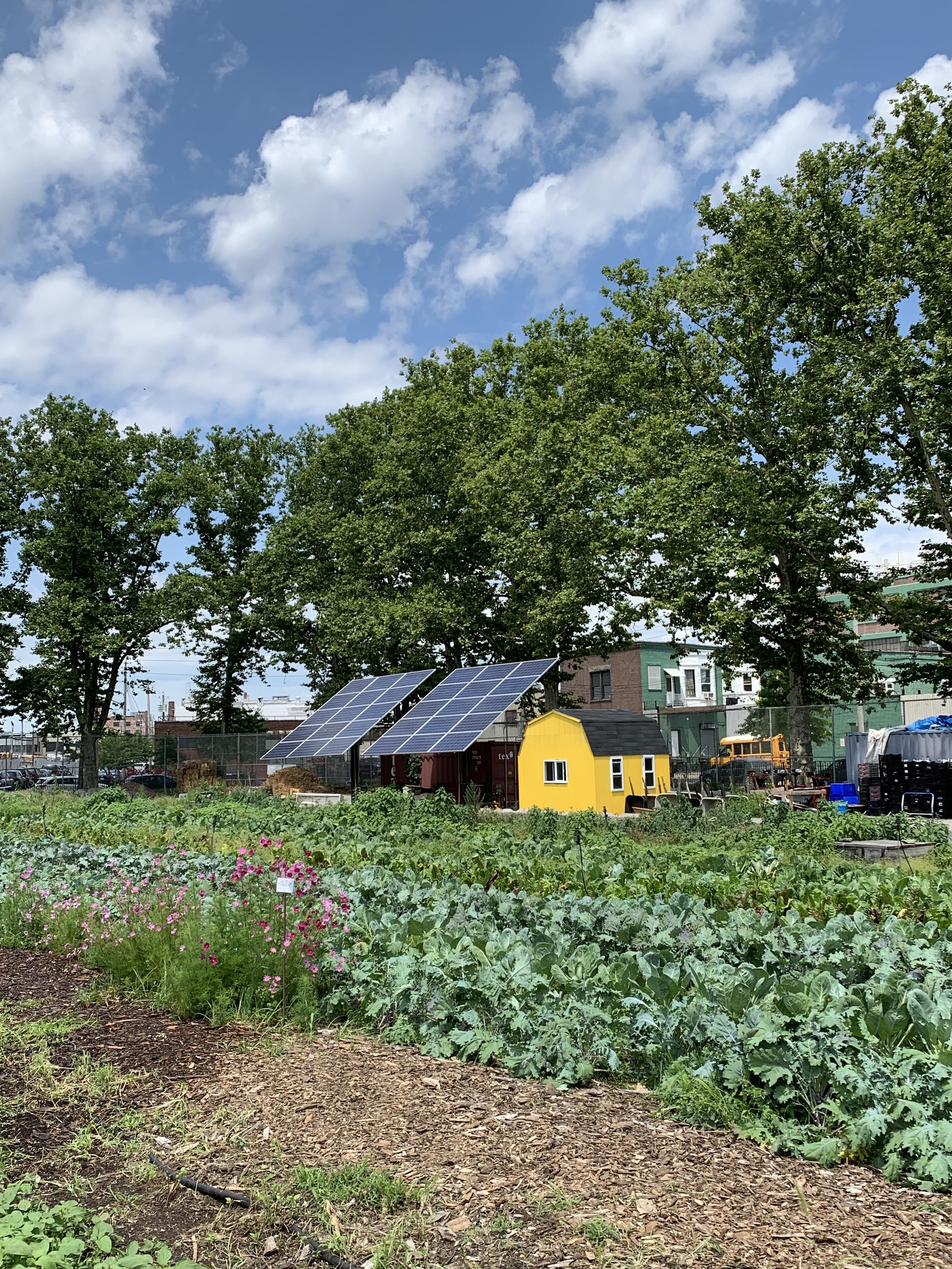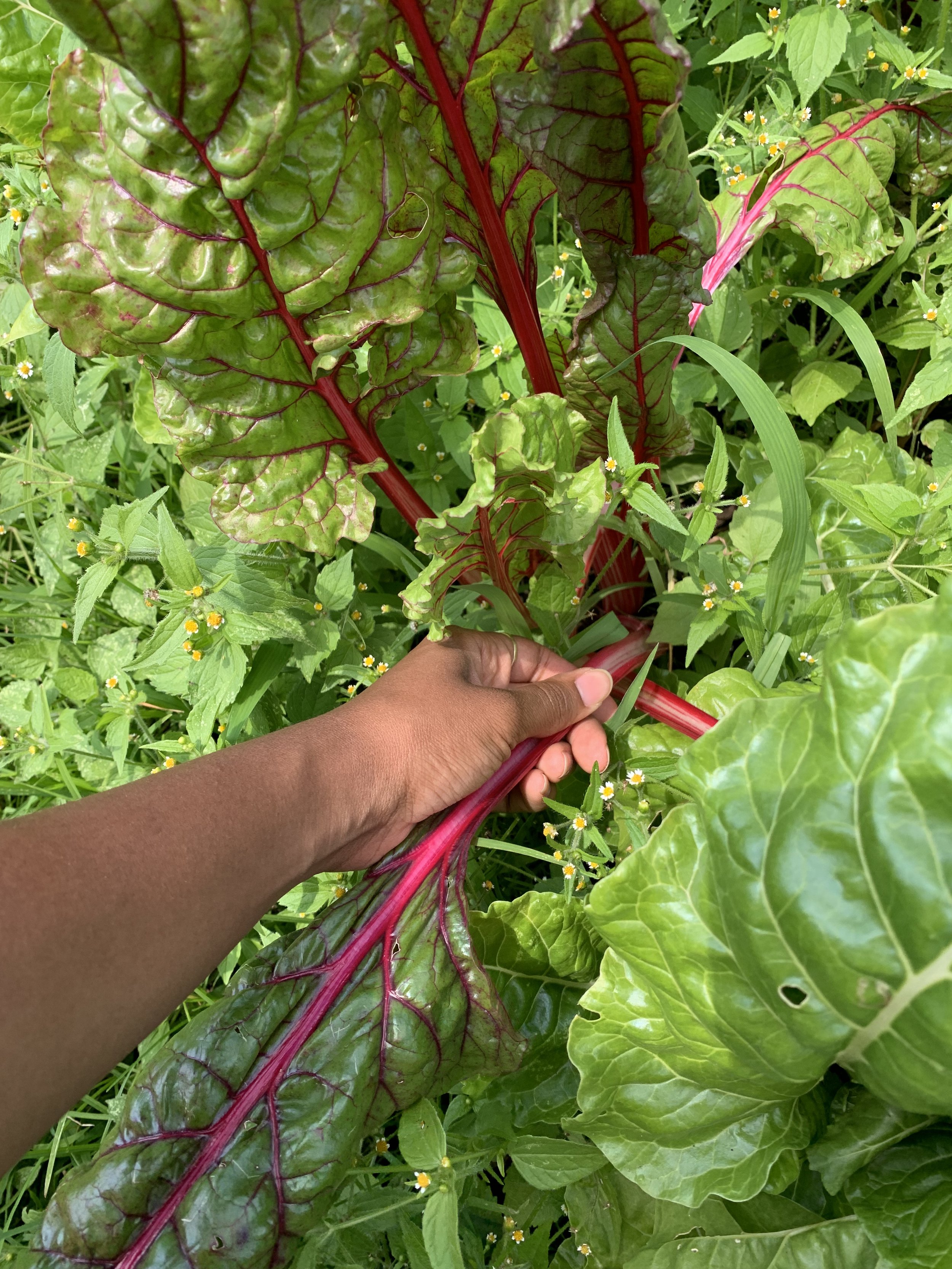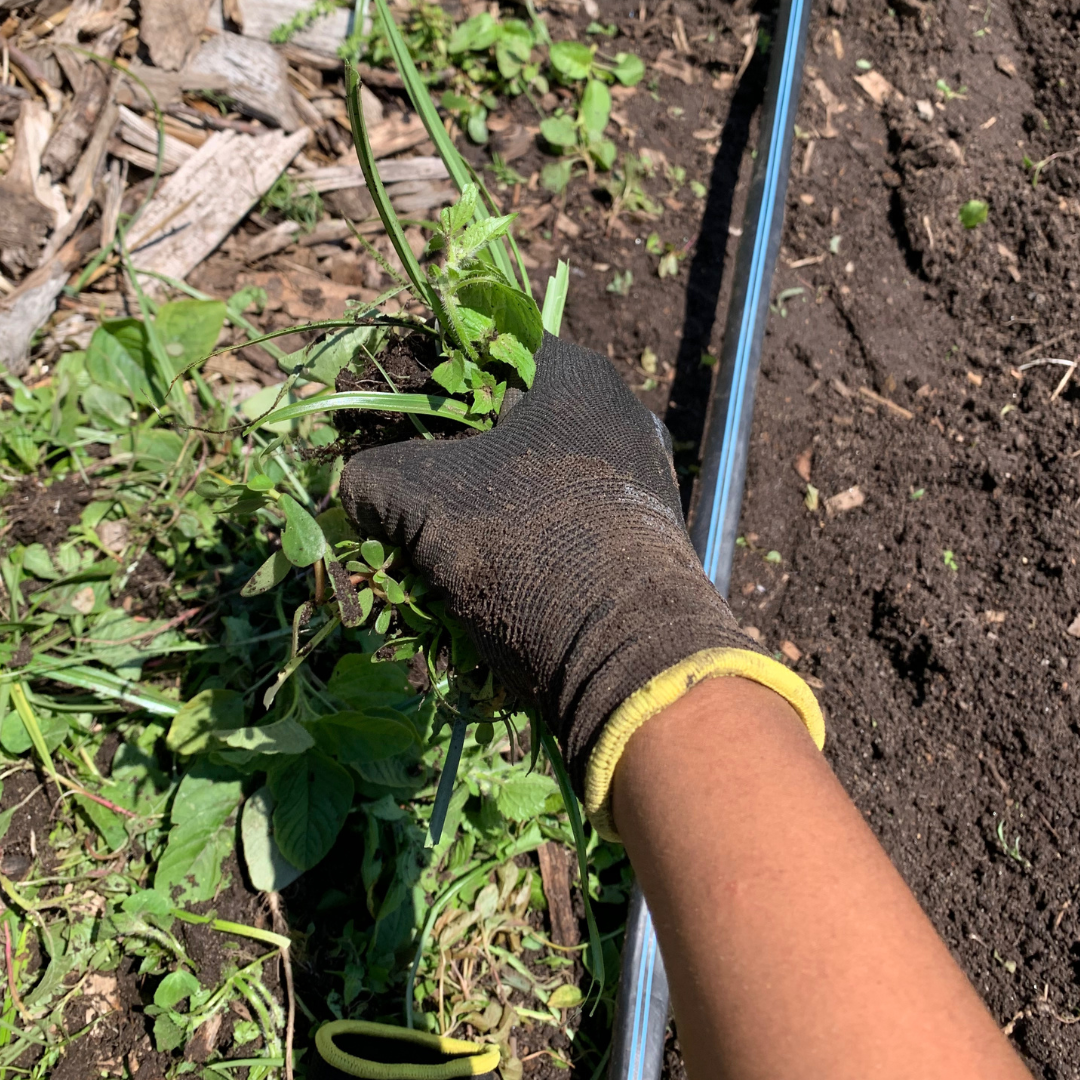This post is part of Storm Lewis’s 2022 Global Food Fellowship.
Food Sovereignty in Urban Environments: A Case Study of Brooklyn, New York




Growing up in what used to be a predominantly Black neighborhood, I witnessed how gentrification and food insecurity transformed Brooklyn’s foodscape. My drive to address disparities in food access further developed as my family grappled with the impacts of breast cancer. The relationship between cancer and diets made it clear to me that the quality of food consumed is a critical component of community health. Yet, food apartheids pervade areas where I grew up.
As a student and activist, I turned to urban agriculture as a platform to gain autonomy and help others connect to nutritious foods. Whether I was growing collard greens in my elementary school yard or advocating for public school gardens, I found strength in the ability to grow food. My experience gardening made me understand that access to healthy, culturally appropriate food is only one facet of community health. Black communities must also have a stake in the production of our foods.
Historically, Black farmers have been systematically discriminated against and denied the right to cultivate farmland for decades. Institutions such as the United States Department of Agriculture (USDA) have strategically reduced Black land ownership by limiting access to loans and access to quality land free from environmental hazards. The number of Black farmers in the United States continues to decline due to the loss of land and agricultural knowledge in Black communities.[1]
In 2017, less than 1% of New York State Farmers were Black.[2] [3] For the Black farmers that managed to produce an annual harvest, their profit margins were significantly lower than White farmers. Given this history, current efforts to improve food systems must support models in which Black farmers can achieve self-determination through communal or individual control of agricultural land.
Food sovereignty is one of the few approaches encouraging communities to define and control their food systems. However, few studies examine the pathways to success for Black farmers. My study fills this gap by questioning what Black-led, food sovereignty organizations exist in Brooklyn across the food supply chain. Do they self-identify as food sovereign? Lastly, what are the barriers to implementing food sovereignty on a local and national scale?
Hattie Carthan Farmer's Market.
In June of 2021, I used a multi-method approach to understand the challenges and achievements of Black foodways through interviews and participant observation. I spoke with over forty-five organizations ranging from Green Thumb, Universe City, East New York Farms, Seasons Plant Shop, New Visions Garden, Oko Farms, to Red Hook Community Farms, and other gardens in Brooklyn.
I also engaged in fifty-five hours of volunteer work at farms and gardens. Some of the tasks involved weeding, watering, and harvesting plants, building trellises, picking up trash, organizing tool sheds, and selling produce at farmer’s markets. The information collected will contribute to a resource guide that helps food producers access funding sources. The final paper will also provide recommendations for local governments to support Black food systems.
Overall, it was a privilege working alongside farmers to grow and distribute fresh produce. I am humbled to have learned from those who dedicate their lives to food production. As a result, I gained a form of knowledge that cannot be taught in the classroom nor read in literature. I will carry these lessons with me as I move through my studies at the Yale School of the Environment (YSE) and beyond.
To learn more about my research, you can read my article on food sovereignty published in the Mellon Mays Undergraduate Fellowship Journal. Later this year, I will partner with MidHeaven Network to moderate a podcast series featuring Black agrarianism in New York City. I will also present my project at the New Horizons in Conservation Conference, the RITM 3-minute Research Presentations, and the YSE Summer Experience Showcase.
———
This project was made possible with the support of the Global Food Fellowship, the Mobley Family Environmental Humanities Summer Student Research Grant, the RITM Research and Conference Travel Award, and my research advisor, Dr. Dorceta Taylor.
Full Links:
https://uraf.harvard.edu/files/uraf/files/mmuf_journal_2021.pdf
https://www.midheaven.network
Citations:
[1] Taylor, D. E. (2018). Black farmers in the USA and Michigan: Longevity, empowerment, and food sovereignty. Journal of African American Studies, 22(1), 49–76. https://doi.org/10.1007/s12111-018-9394-8
[2] Taylor, D. E. (2018). Black farmers in the USA and Michigan: Longevity, empowerment, and food sovereignty. Journal of African American Studies, 22(1), 49–76. https://doi.org/10.1007/s12111-018-9394-8
[3] United States Department of Agriculture. Census of Agriculture. 2017 Volume 1, Chapter 1: State Level | 2017 Census of Agriculture | USDA/NASS. (2017). Retrieved October 28, 2021, from https://www.nass.usda.gov/Publications/AgCensus/2017/Full_Report/Volume_1,_Chapter_1_State_Level/.

